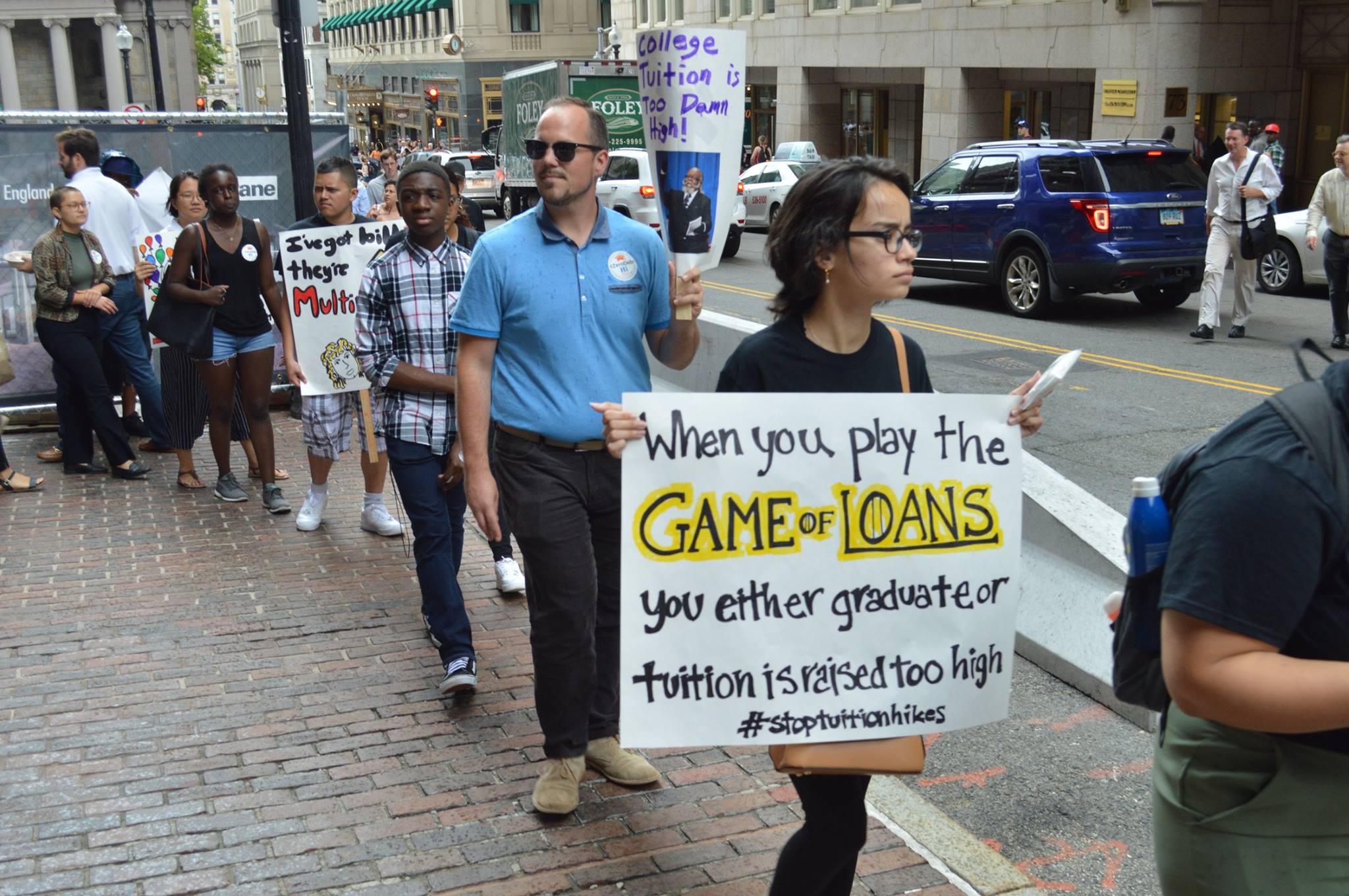A 2.5 percent increase in tuition by the University of Massachusetts has drawn a backlash, as more than 50 protesters, including students, alumni, and higher education activists on Wednesday came out on streets to protest the hike.
On July 13, the university’s Board of Trustees voted to increase tuition rates by 2.5 percent, or an average of $351 per student, for in-state undergraduate students and 3 percent or an average increase of $938 per out-of-state student for the 2018-19 academic year.
The protest was organized by the Hildreth Institute with support from Inversant, La Vida Scholars, Fair Shot MA, and Chelsea Collaborative where the protesters demanded more state funding.

Organizers of the event reported that they chose One Beacon Street, the location of UMass offices, to highlight the implication the state budget has on public higher education financial aid.
“Students who entered UMass as freshman in 2015 have seen a 17% increase since their matriculation, totaling over $4,500. Massachusetts currently sits at 36th in higher education spending per capita in the country—16% below the U.S. average. Students at the protest affirmed that they demand investments in higher education, not higher tuition. State funding for higher education in MA decreased by 32% since 2001, while state scholarship funding per student was cut by an additional 32%,” organizers said in a press release.

“It’s extremely important for me to be here — for students to be here,” Jordan Leedberg, a Tewksbury resident and student leader for the Institute at UMass Lowell said while addressing the protestors.
“Our legislators need to understand that their policies and decisions have direct implications for students and families across the Commonwealth. If we don’t show up, they won’t understand that.”
Bob Hildreth, the founder of Hildreth Institute, who is at the forefront of opposition against the tuition hike, said, “The protest today demonstrated that students want to be part of the conversation – and our job as the Hildreth Institute is to elevate that voice and their stories to the political stage.”



